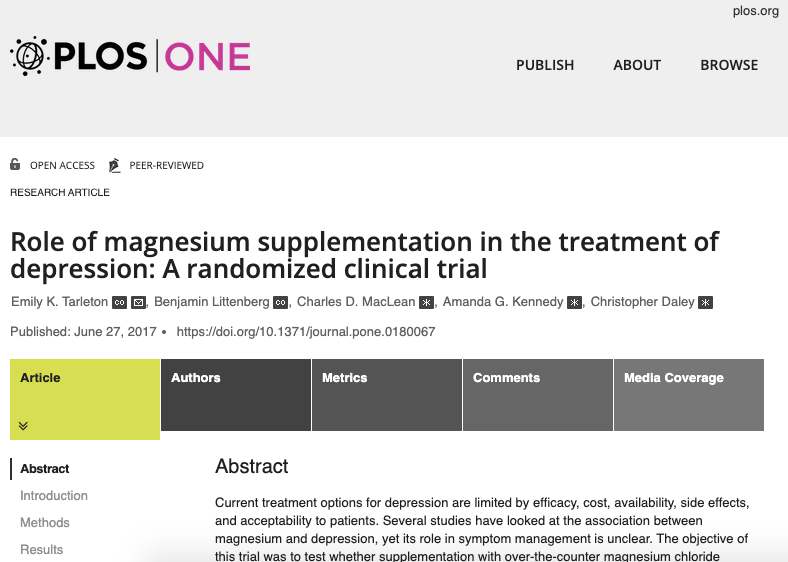|
Maybe. PlosOne has a decent article on it: https://journals.plos.org/plosone/article…
But compliance even with magnesium supplementation could be dicey. After all, even among patients who believe in their drugs and whose drugs are life-saving, compliance for popping a pill is less than 50%: https://www.ncbi.nlm.nih.gov/pmc/articles/PMC3068890/. Thus, even if we convince people magnesium works, along with the placebo effect, we’re unlikely to get great outcomes, simply due to the fact that people are conditioned to not take care of themselves. Efforts to quantify psychiatric disorders have generally found that anxiety and depression occur in an unmitigated EEG pattern of beta frequencies: https://www.eurekalert.org/pub_rel…/2018-11/cp-eib110118.php. In fact, utilizing this finding, companies like Fisher-Wallace have long obtained FDA clearance for therapeutic interventions of running alternate frequency electrical stimulation across the brain in order to literally shift the brain out of pain, anxiety, depression. Likewise, the Zengar Institute has case studies involving (via neural feedback) the reversal of severe PTSD by helping individuals control their brains to be in beta frequency less. Mechanistically, therefore, magnesium may have an ally in this research. That is, vagal tone and heart rate variability align with EEG patterns. This has been the foundational argument in favor of meditation’s and exercise’s benefit for psychiatric disorders. Although, in the case of magnesium, we know that if you just port in magnesium sulfate in the ER, tachyarrhythmia stops. It‘s likely that magnesium better manages this to an outcome of less beta frequency brain activity.
0 Comments
Your comment will be posted after it is approved.
Leave a Reply. |
Elev8 Wellness
|
LIVE. AWESOME.We offer the highest quality in personal fitness, nutrition, and mindset coaching, helping you achieve your fitness, health, wellness and performance goals no matter the obstacle. With virtual online training and private, in-studio training we make it easier to reach your wellness goals safely.
No more can't. No more not good enough. If you compete in a sport, let your mind no longer hold you back from being the greatest. If you don't, let your mind no longer hold you back from being the best version of you that you can be. Sign-up for a Tour Covid Screen Waiver Elev8 Waiver Become an Elev8 Instructor Space Rental |
6244 lyndale ave. s., minneapolis, mn 55423
|
© 2021 Elev8 Wellness LLC. All Rights Reserved. site map | contribute | SITE BY Sproute Creative


 RSS Feed
RSS Feed
